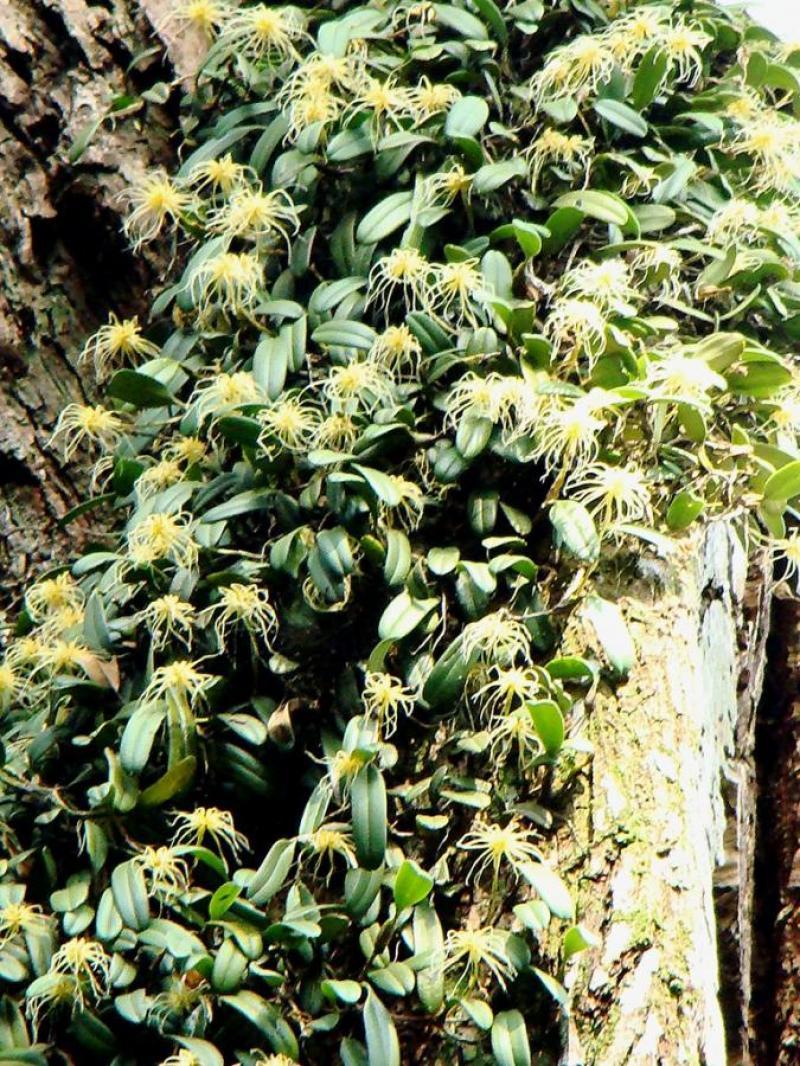Bulbophyllum vaginatum
Also known as: The Vagina Bulbophyllum or Phyllorkis vaginata Bulbophyllum whiteanum Cirrhopetalum whiteanum Cirrhopetalum stramineum in the subfamily: Epidendroideae
Native to: Thailand
General Information
The Vagina Bulbophyllum is a miniature sympodial hot growing epiphytic orchid belonging to the sub family Epidendroideae native to Thailand.
Plant Description
Sympodial. Grows to 14cm. Each new growth has a single oblong shaped leaf that grows to 2.5-12cm long. Pseudobulbs grow to 1-5cm
Substrate(s)
- Coarse
- Medium
- Fine
- Bark
- Spaghnum Moss
- Perlite
Care Notes
These orchids like to be kept on the dry side, but may need to be watered daily during warm weather, and prefer a well draining mix or also do well mounted, provided they can be watered regularly.
These are quite a forgiving orchid, there are no special requirements to get this orchid to flower, just good care and consistent conditions. Larger plants may be more fussy and can react poorly to change; a poorly timed repotting, a pest infection or an unusually hot day can set them back for a couple of years. However, even plants that have been treated poorly can thrive, and if they are set back they often recover much stronger then they would otherwise be.
Climate
Grows at low elevations. Rainfall ranges from 175mm to 688mm per day, heaviest in January and lightest in July. Humidity ranges from 82% to 89%, highest in January and lowest in July. Temperature ranges from 21C to 32C, highest in August (21C to 32C) and lowest in January (21C to 29C).
Fertiliser
Apply liquid based fertiliser per recommended directions. They can benefit from a high phosphate fertiliser leading up to flowering season, followed by a high nitrogen fertiliser when new growth appears, and a balanced fertiliser in other times. These orchids can also tolerate slow release fertiliser applied 1-2 pellets per cup (250ml) of media.
Use balanced fertiliser during Spring and Summer. Be sure to flush out excess fertiliser by running water through the media regularly year round. Apply fertiliser regularly at half strength year round. Use a high Nitrogen fertiliser during Spring and Summer. Use a high Phosphorous fertiliser during Summer.Potting
Due to the growth nature of these plants they are best mounted onto cork, tree fern slabs, or even trees if the climate suits. Water regularly especially in hot weather.
This plant does very well in baskets or suspended pots This plant does well mounted to Tree trunks or Fern slabs. Repotting is best done annually.




















